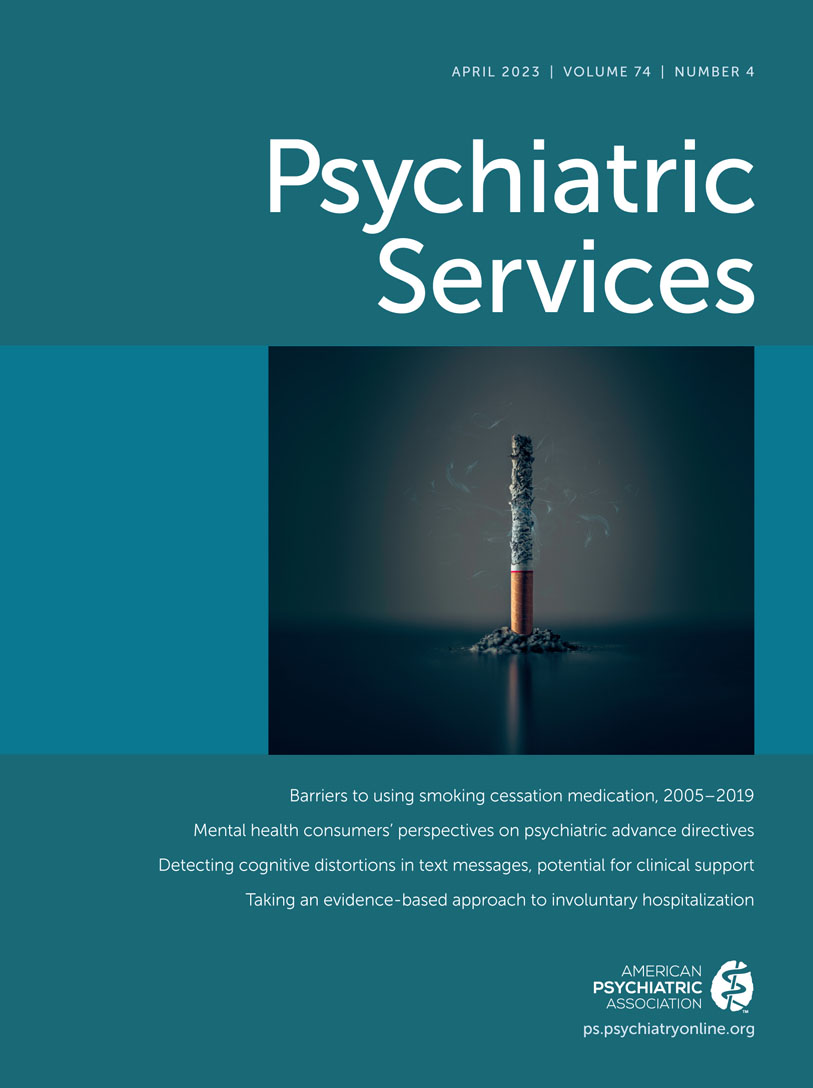A Survey of Behavioral Health Care Providers on Use and Barriers to Use of Measurement-Based Care
Abstract
Objective:
Despite robust evidence for efficacy of measurement-based care (MBC) in behavioral health care, studies suggest that adoption of MBC is limited in practice. A survey from Blue Cross–Blue Shield of North Carolina was sent to behavioral health care providers (BHCPs) about their use of MBC, beliefs about MBC, and perceived barriers to its adoption.
Methods:
The authors distributed the survey by using professional networks and snowball sampling. Provider and clinical practice characteristics were collected. Numerical indices of barriers to MBC use were created. Ordered logistic regression models were used to identify associations among practice and provider characteristics, barriers to MBC use, and level of MBC use.
Results:
Of the 922 eligible BHCPs who completed the survey, 426 (46%) reported using MBC with at least half of their patients. Providers were more likely to report MBC use if they were part of a large group practice, had MBC training, had more weekly care hours, or practiced in nonmetropolitan settings. Physicians, self-reported generalists, more experienced providers, and those who did not accept insurance were less likely to report MBC use. Low perceived clinical utility was the barrier most strongly associated with less frequent use of MBC.
Conclusions:
Although evidence exists for efficacy of MBC in behavioral health care, less than half of BHCPs reported using MBC with at least half of their patients, and low perceived clinical utility of MBC was strongly associated with lower MBC use. Implementation strategies that attempt to change negative attitudes toward MBC may effectively target this barrier to use.



